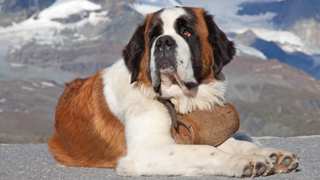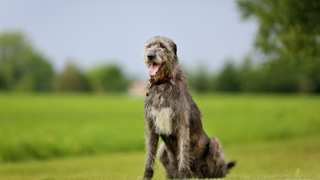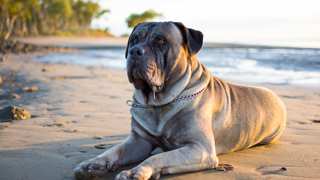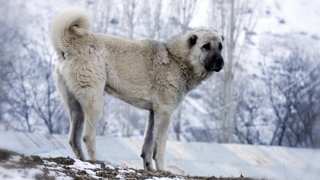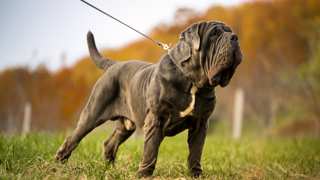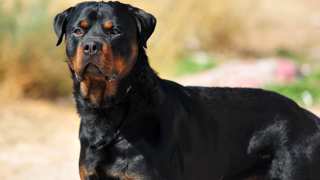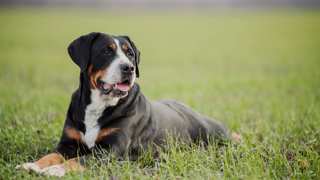The English Mastiff diet, like that of all breeds, will need to include animal proteins, healthy carbs, vitamins, minerals, and omega fatty acids--nutrients every dog needs to maintain its health long-term. This means the best Mastiff dog food is premium dry kibble, as it has balanced portions of the above-listed ingredients. If consistently fed a premium brand like Royal Canin, Mastiff dogs will be much healthier and longer-living, and they're not as likely to become overweight.
Just how much food does a Mastiff eat? In short, an incredible amount! Adult Mastiff feeding portions: 6-8 cups of dry food per day, divided into two meals. When feeding a Mastiff puppy, food portions are smaller: depending on the pup's age, about four cups per day, divided into three meals (not two) until eight months of age.
And deep-chested breeds like the Mastiff are prone to gastric torsion, aka bloat. To minimizes the chances of bloat occurring, allow an hour between exercise and feeding.
For more info on how much to feed a Mastiff puppy through adulthood, see this English Mastiff feeding chart:
Dog AgeDog WeightFood TypeAmountFrequency2 Months25 lbsDry (Puppy formula)0.75 cups3x/day4 Months45 lbsDry1 cup3x/day8 Months100 lbsDry1.5 cups3x/day12 Months140 lbsDry* (Puppy/Adult)2.75 cups2x/day16 Months+175 lbsDry (Adult formula)3.5 cups2x/day*--Around this time, transition to adult food by mixing in adult formula with the puppy formula, in slowly increasing amounts with each meal, for one week.
Try if possible to stick to the above-listed daily portions. These dogs are highly prone to obesity, and if constantly overfed (and especially, under-exercised!) they'll quickly become overweight--and a fat Mastiff will have major health problems and an even shorter lifespan. You can help control your English Mastiff's weight by having consistent feeding and exercise schedules, by not feeding the dog table scraps, and by not leaving food in the dog's bowl all the time.
If you're worried your English Mastiff is overweight, try this simple test: run a hand along the dog's side, pressing down a bit. If you can't detect any ribs, it's diet time--which means less food and more exercise.

